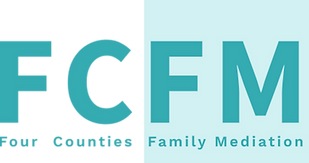
What is Mediation?
Mediation is a voluntary method of resolving disagreements. It provides families with an opportunity to resolve disagreements arising out of their separation or divorce or over care for elderly family members. Parents, separating couples or adult family members may decide to participate in mediation to negotiate a settlement with respect to issues including:
-
A parenting plan for children
-
Child support
-
Spousal support
-
Division of property
-
Care of elderly family members
Mediation is a cooperative alternative to, or a complement to, the court process and has the potential benefits of saving time, money, reducing conflict, and preserving relationships. It is one of the most effective options when people are willing and able to put aside their emotional differences, anger, and frustration to work towards developing a plan which is mutually acceptable.

What does a Mediator do?
A Mediator is a professional trained to act as a neutral, third-party facilitator. The mediator's role is not to give legal advice, to take sides or make recommendations, but rather to help parties explore the issues and find solutions. The mediator helps to provide a safe environment and offers options and suggestions during the process which helps the parties reach an agreement.
The Mediation Process

Telephone Intake
Our Mediation Program Coordinator will get basic contact information from you as well as the issues to be discussed in mediation.

Connect with a Mediator
Once each party has completed an intake, a file will be opened and assigned to a mediator who will meet with each party separately first for a mediation intake (free of charge).
Joint Mediation
Once fees have been paid, the mediator will schedule joint mediation sessions to discuss through the issues both parties wish to talk about.

Memorandum of Understanding
At the end of the mediation, the mediator will draft a document called "Memorandum of Understanding" which outlines all the issues agreed to by the parties.

How Mediation Works
REFERRALS
We accept self-referrals as well as referrals from the court, lawyers, doctors, individuals or other community services and professionals. Each party involved in the mediation must call the office to complete a brief telephone interview. Once this has been done, the mediator will meet with each party individually to gain an understanding of the issues and concerns, and to determine whether mediation will be appropriate.
Mediation is not appropriate for everyone. For example, if there is a history of family violence or a significant power imbalance in the relationship, mediation may not be appropriate. Possible reasons mediation should not take place as well as issues to be mediated, will be explored during the initial meeting. There is no cost for this initial meeting with the mediator.
This initial session also allows the parties to clarify their understanding of mediation and to decide whether they wish to proceed. The mediator will then meet the parties in joint sessions and work towards assisting them to reach an agreement. At the completion of the mediation process, the agreement or Memorandum of Understanding may be prepared by the mediator.

MEDIATIONS IN COURT
There is a Mediator located at the Family Courts in Peterborough, Lindsay, and Cobourg, who is available at certain times of the week to mediate brief, narrow issues. Mediations take place on a first come, first served basis. The court-site mediator is also able to provide information and referrals to our agency for mediations that require more extensive sessions than can be provided at the court. There is no cost for the mediation or referral services provided at the court. (Also see the tab “Family Law Info Centre” for more information about the free services available at the family court.
MEDIATIONS IN THE COMMUNITY
For help with full parenting plans or financial agreements, you may use the mediation services offered by our agency. Mediations take place at our offices located throughout Peterborough, Lindsay and Cobourg. There is no cost to attend the initial individual session, and once both parties agree to proceed with mediation, you will likely attend five or six hours of joint mediation sessions.

FEES
Fees for mediation are assessed for each party based on a sliding scale that considers both income and the number of dependants. Our fees start at $5.00 per person per hour, and the agency receives funding from the Ministry of the Attorney General to subsidize fees. You are welcome to call for a no-obligation quote of your fees prior to starting mediation.
LEGAL ADVICE
It is strongly recommended that all participants in the mediation process seek legal advice prior to participating in mediation and certainly prior to signing any agreement with respect to issues arising out of their separation. The mediators will educate with respect to issues but will not provide legal advice.
